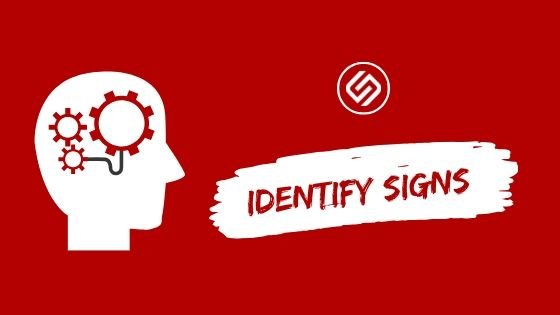Those who constantly push themselves to peak performance may risk a breakdown at some point. How you can tell that you are too hard on yourself – and how you can take countermeasures.
- I always have to go full throttle, after all, I’m a role model for my employees.”
- Quality comes from torture.”
- You have to bite your way now!”
Many people who have ambitious goals have internalized such sentences. Your demands on yourself are high. Their ability to really get involved in tasks and call up extreme performance enables them great success. But sometimes they pay a high price for it – because they do not know their limits and push their own needs aside.
Do you find yourself in the following warning signals? Then you may be too hard on yourself.

YOU ALWAYS LOOK FOR THE FAULT FIRST
Setbacks are part of entrepreneurial life. To dismiss an employee. Customers jump off at the last moment. Supposedly great ideas fail. How do you deal with that? Are you prone to self-destruction and wondering for days what you did wrong? Or do you manage to change your perspective and realistically classify the reasons?
YOU COMPARE YOURSELF TO OTHERS.
Why can he afford a new car again? How does she manage to constantly attract new customers and appear at every conference? Do you sometimes catch yourself thinking that others have a better grip on their lives and you can’t keep up?
Those who constantly compare themselves with others become unhappy, reduce their own performance and waste energy. Because: You cannot know what it really looks like behind the supposedly shining facade of the others.
YOU DON’T APPRECIATE YOUR SUCCESS
Once you’ve achieved a hard-earned goal, many tend to downplay their own contribution. You were in the right place at the right time. Or just had pork. And anyway: Others can do it effortlessly.
Are you always aware of how much time, energy and skill you have invested to achieve the goals you have set? Or are you focusing on what you haven’t done?
YOU DON’T TAKE BREAKS.
Lunch break? There is no time for that right now! Vacation? Is overrated! After all, the shop has to run. Whether due to an excessive sense of duty or the conviction that you have to do everything yourself: Many entrepreneurs consider breaks to be superfluous. This is not only unhealthy in the long run. It also hurts productivity. According to time management experts, every person needs a break after 90 minutes or at most two hours, because after this time the performance drops.
YOU DON’T LISTEN TO YOUR BODY.
No matter whether your head is pounding or your back is rebelling: you drag yourself to work. People who are too hard on themselves do not pay attention to their body’s warning signals. They may also have forgotten how to recognize their own needs. Should I rather cancel this appointment? Do I need a large glass of water? Or do I belong in bed? Those who manage to better assess their own capacities can get through the day more relaxed.
A mindfulness exercise like the flash method can help, for example. The first step towards more compassion for yourself.
AVOID BEING TOO HARD ON YOURSELF
Can you learn to be less hard on yourself? The American psychologist and professor Kristin Neff and Chris Germer, they are clinical psychotherapist at Harvard Medical School, have developed a special training method for this. “Mindful Self-Compassion” is taught worldwide and is intended, among other things, to help you deal with yourself less strictly.
Recommended Readings: Ways Of Thinking You Should Avoid In The Workplace
Central to the multi-week self-compassion course, which is based on meditation and mindfulness exercises, is the question: “How would you behave towards a friend who is in the same situation as you?”
According to Neff, this approach creates a changed relationship with oneself. Instead of judging oneself mercilessly and pushing for more performance regardless of losses, one can learn to be friendly and comforting with oneself in difficult situations. After all, you wouldn’t say to a completely overworked friend: “Are you sure that you want to finish work now?”










Leave a Reply